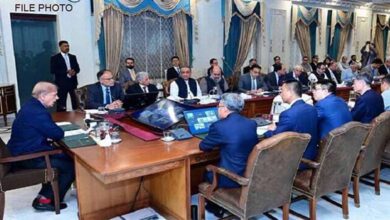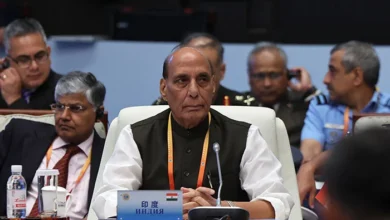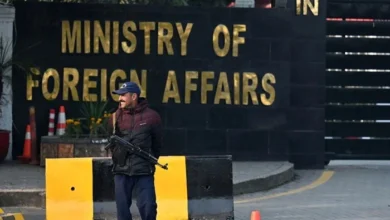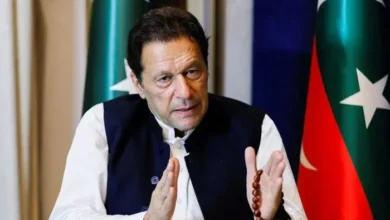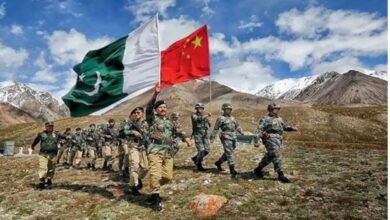Prime Minister Shehbaz Sharif has strongly warned India against its continued threats and aggression over the region’s water resources, vowing that Pakistan will respond with full force and national unity to defend its rights under international agreements.
Chairing a high-level meeting focused on Pakistan’s water security, PM Shehbaz described India’s stance on the water issue as a continuation of its arrogance and hegemonic mindset. “Just like Marka-e-Haq, we will respond to India’s water aggression — and Pakistan will emerge victorious,” he declared, calling the right to water security a “collective national challenge.”
The emergency meeting, attended by chief ministers of all four provinces, the prime ministers of Gilgit-Baltistan and Azad Jammu and Kashmir, as well as key federal ministers, focused on formulating a comprehensive national action plan to safeguard Pakistan’s water resources amid India’s escalating hostilities.
“All leaders in the meeting unanimously condemned India’s aggressive water policy,” a statement said.
The premier confirmed that India has threatened to cut off Pakistan’s water, a move that he says violates the spirit and letter of the Indus Waters Treaty of 1960, under which Pakistan has rights over three western rivers. But, he claimed, the whole world had rejected India’s threats. He has strongly condemned India’s unilateral suspension of the Indus Waters Treaty, declaring it an act of “water aggression”.
“India is making a narrative regarding the water-sharing agreement, but no one in the world has accepted it,” Shehbaz said. “All of India’s diplomatic efforts have failed miserably. Even its attempt to lobby for delaying the Asian Development Bank’s (ADB) agenda by three days was unsuccessful.”
PM Shehbaz emphasized the importance of building new water reservoirs as a national priority, urging both the federation and provinces to work together. “Construction of non-disputed water reservoirs must be completed on a fast track,” he said, while assuring that new dams will only be built with the consensus of all provinces.
High-level committee formed
To move the plan forward, a high-powered committee has been formed under Deputy Prime Minister Ishaq Dar. The committee will evaluate funding strategies for dam construction and includes all five chief ministers, the AJK prime minister, and relevant federal ministers.
The prime minister has directed the committee to submit its recommendations within 72 hours.
Progress on key dam projects
A detailed briefing during the meeting revealed ongoing work on major dam projects:
- Diamer-Bhasha Dam, a crucial reservoir in the north, is under construction and expected to be completed by 2032.
- Mohmand Dam is progressing steadily, with completion anticipated by 2027.
- Pakistan currently has 11 major dams with a storage capacity of 15.318 million acre-feet.
- 32 dams are under construction under the Public Sector Development Programme (PSDP), while 79 more dams are being built under the Annual Development Programme (ADP).
He credited recent international developments and diplomatic support as a form of “historic victory” for Pakistan in its water rights dispute. “The amount of gratitude to Allah for this victory is still not enough,” he stated. However, he warned that even after facing defeat in the recent war, India has continued to issue threats, which Pakistan would confront with “full force and unity.”
“Securing the water needs of 240 million Pakistanis is our duty,” the prime minister said, adding that the people of Pakistan stand behind the armed forces “like a lead wall”. “We will have to take decisions against the challenges together,” he insisted.
He emphasized that India’s aggression on water resources is not just a diplomatic dispute but a matter of survival for Pakistan’s growing population and agricultural economy. “We must prepare ourselves to confront India, politically, diplomatically, and if necessary, otherwise,” he stressed.
PM Shehbaz urged for unity and joint decision-making at all levels to face this crisis. “We will jointly destroy India’s arrogance and conceit. This is not a one-man fight—it’s the fight of every Pakistani,” he said.
The meeting concluded with a call to formulate a coordinated national response, including legal, diplomatic, and strategic measures to defend Pakistan’s share of water and ensure long-term sustainability. “Pakistan’s response will be through strength, strategy, and solidarity,” PM Shehbaz affirmed.


